Эдийн засаг
P. Gankhuu: Leveraging investment for downstream processing industries can enable economic expansion
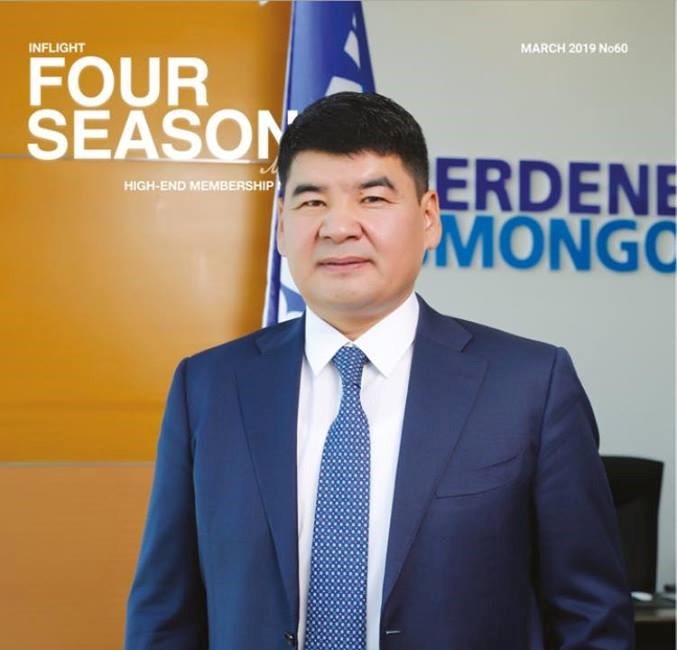
The minerals and mining industry that is an integral part of economic development accounts for the major part of foreign investment, thereby constituting the greater part of national budget revenue. The Government of Mongolia set up Erdenes Mongol LLC (Erdenes Mongol) to increase the value for each citizen by appropriate development of minerals. The team of Magazine “Four Seasons Melody” featured Erdenes Mongol Chief Executive Officer (CEO) Gankhuu Purevjav in this issue and had discussion on the government policy and legal framework with respect to the mining industry and the projects the company implements and is committed to implementing.
- Let’s start our interview with the business and policy of Erdenes Mongol mandated to represent government interests in the strategic mineral deposits. As CEO what policy do you pursue?
– The role of Erdenes Mongol is to pursue sound asset management policy to develop the strategic mineral deposits and mining-based infrastructure. We have run business such as holding state-owned shares and licences at the strategic mineral deposits and attracting investment by setting up partially state-owned enterprises under applicable laws and regulations. The shareholder of our company is the Government of Mongolia. Therefore, our operations comply with policy and guidance being made and provided by the shareholder. 12 subsidiaries currently operate as part of Erdenes Mongol group. We aim to clearly define development and strategic objectives of the subsidiaries and make investment needed to ensure sound and smooth corporate operation.
- Perhaps, your company approved its medium-term strategic plan and determined its priorities in late 2018. What medium-term strategy do you plan to pursue?
A number of projects are set out in the medium-term strategy of the company. We plan to develop projects by attracting investment on global and domestic markets. In this context, we aim to have bilateral business meetings and develop mutually beneficial cooperation. Prime Minister of Mongolia U. Khurelsukh exchanged views on joint implementation of the technical innovation projects at Baganuur and Shivee Ovoo during his official visit to Japan. We also took part in business meetings with and exposed the group’s business and projects to mining companies in the Republic of Turkey which opened a gateway to cooperation. We also participated in the PDAC Convention 2019 held in Toronto, Canada, in March 2019, and presented the strategic objectives and projects being pursued and developed by Erdenes Mongol. We promoted investment and extended a positive message and understanding on our company to a mining industry community abroad by being part of the world’s premier mining convention.
- Erdenes Mongol aims to be a leading asset management company to grow into a global player. Obviously, to that end, it should have highly qualified and specialized personnel. What policy do you pursue to train personnel and build capacity?
Being a mineral manufacturer, project implementer, and asset manager has been a top priority of Erdenes Mongol. It also should have a separate law that secures a legal framework consistent with international standards to be a company with good governance. In this context, we are acting to draft bills on Sovereign Wealth Fund (SWF) and holding company.
We have had discussion like better governance leads to development for over 20 years. The word “governance” recently was almost in fashion. We don’t need to search it elsewhere. There are many recommendations, standards, and assessments. We should determine the current level if we need to improve something.
It is reasonable that we should operate regularly by internationally recognized standards to be an international recognized company with good governance. Conversely, human capital is essential for smooth corporate operation and enhancement of competitiveness. I believe that highly qualified and specialized personnel will develop and lead Mongolia. Erdenes Mongol aims to introduce and obtain international certification of competence for a risk management system as part of creation of a human resource management system and ISO 9001 quality management system (2015), and ISO 37001 anti-bribery management system (2017) to. It is also important to introduce the responsible mining principles aimed to meet the Sustainable Development Goals (SDG) to the subsidiaries. To that end, it intends to introduce and obtain international certification of competence for ISO 14001 environmental management system (2015) and OHSAS 18001 occupational health and safety management system (2007) to the subsidiaries and affiliates to reduce industrial accidents and ensure occupational safety, and introduce ERP (Enterprise Resource Planning) to the group.
Moreover, the Strengthening Institutional Framework and Management Capacity Project has been implemented with a soft loan from the Asian Development Bank (ADB) since 2016. The project will carry out tasks such as corporate strategy development, parent and subsidiary valuation, business valuation and certification, operational capacity strengthening, productivity enhancement, investment capacity strengthening, diversification, and introduction of integrated management information system.
- Over 10 years have elapsed since Erdenes Mongol was incorporated. What contribution has it made to Mongolia’s social and economic development?
As I stated above, 12 subsidiaries currently operate as part of Erdenes Mongol group. Whereas our company initially paid taxes and fees of MNT 3.7 billion to the government budget per year, the sales income and earnings of the group accounted for MNT 260.2 billion and MNT 17.2 billion in 2018. The Government of Mongolia – the shareholder made a decision to allow each citizen to own one preference shares of our company. Accordingly, 3 million preference shares were recorded in Erdenes Mongol’s financial statement in 2018. The company will issue and record another 2 million preference shares in 2019.
The Government of Mongolia defined government policy on the minerals and heavy industry sector. Should we pursue appropriate downstream processing industry development and investment policy, we can get out of the economic difficulty and become a manufacturer. Erdenes Mongol will pursue the same policy.
- Your company controls and ensures operation of the Tavan Tolgoi to Gashuun Sukhait heavy duty road – a major gateway of your country’s mineral commodity exports. Do you face difficulty in ensuring smooth operation of the road? Since mineral commodity exports are likely to grow, what action do you plan to take?
As of today, mineral commodity exports make up the major part of the total trade turnover and exports in Mongolia. Mongolia planned to export 42 million tons of coal, 1.4 million tons of copper concentrate, 7.5 tons of iron ore, and 360 thousand tons of fluorspar concentrate in 2019. Given preliminary estimation, 37-40 million tons of coal and about 1 million tons of copper concentrate will be transported on the Tavantolgoi to Gashuun Sukhait heavy duty road in the coming year. Ensuring smooth transportation is a big responsibility for us. Whereas about 4,500 trucks were used for transporting coal on the road in 2016, we anticipate the use of over 12,000 coal trucks in transporting coal on the road and greater road utilization this year. About 800-1,000 trucks cross the border per day.
We have to take account of numerous aspects at the same time to ensure smooth transportation of exports. For instance, we should address numerous aspects such as traffic safety, truck drivers’ health and safety, and working conditions and social issues for road workers as a whole. The company started to provide funds and regulation needed to provide jobs, workers’ facilities, truck stations, rest stops, and first aid, and keep order in 2018.
- You held office of the Cabinet Member and Minister of Energy in 2016-2017. As I remember you had a position that coal price liberalization was impossible unless the energy price was Erdenes Mongol currently owns 75% of the shareholding at Baganyyr and 90% of the shareholding at Shivee Ovoo and in this sense, what policy do you pursue?
The two mines were having difficulty in conducting operations and overburden stripping plan lagging behind at that time. The equipment and machinery of the mines wore out and there was a shortage of necessary parts. The companies brought up the issues such as a great burden associated with the loans that they took out of commercial banks to a Cabinet meeting and took immediate action at that time. As part of the Minister’s portfolio, the Energy Regulatory Authority (ERA) and I worked together and looked at possibilities of reducing the coal price. Accordingly, we ensured that the price of the Baganuur steam coal per ton and that of the Shivee Ovoo steam coal per ton increased to MNT 29,500 and MNT 24,560 respectively and each price grew by MNT 1,500 in November 2016. We also made sure that the price of the Shivee Ovoo steam coal grew to MNT 24,710 per ton and it increased by MNT 150 in January 2017. Accordingly, we made financial sources of MNT 681.5 million and MNT 277.5 million available for Banaguur and Shivee Ovoo operations in December 2016. The ERA and I also collaborated and enabled Thermal Power Plant 2 State-Owned Enterprise (SOE) to pay out MNT 1.2 billion to Banaguur and Thermal Power Plant 4 SOE MNT 1.4 billion to Shivee Ovoo respectively to reduce the accumulated receivables and payables between the mines and thermal power plants.
Though we go on taking action to make the coal price equal to the unit cost by raising it step by step, increases in exchange rates and diesel and imported spare part prices have direct impacts on and lead to growths in the costs. Today, the situation is still challenging. The mines started facing delays in the mining and overburden stripping plans and equipment and machinery wear and tear in 2008-2009 but they haven’t been able to address the problems as a whole. Therefore, we look at approaches to making technical renovation happen to ensure smooth operation of the mines in collaboration with foreign and domestic investors. As a follow-up on the official visit of Prime Minister of Mongolia U. Khurelsukh to Japan who exchanged views on joint implementation of the technical innovation projects at Baganuur and Shivee Ovoo, we are working with the Japanese side closely. Moreover, we plan to issue part of the state-owned shares of the companies on the stock market to raise funds and have started some research in this respect.
We are having joint meetings with the Parliament, Government, administrative authorities, international donor organizations, and major investors as part of the objective to increase the value of Erdenes Mongol subsidiaries and affiliates and kick off major projects soon.
- Aside from mining projects Erdenes Mongol aims to implement major infrastructure projects. They include a number of energy projects. As former Minister of Energy how do you move ahead with development of these projects?
Unless the Baganuur and Shivee Ovoo mines proceed with the same capacity or increase the production capacity, they can’t ramp up the extraction directly and sell coal at market prices. Therefore, we can make profit on the market should we let the two mines sell part of all coal they extract to major power plants of the central grid at the government-controlled price and the rest to other energy and downstream processing industry projects. Hence, we look at some opportunity to carry out technical renovation at the Baganuur and Shivee Ovoo mines in the first place and ensure highly productive operation at low cost having meetings with equipment manufacturers. We also work with foreign manufacturers and investors on a number of energy projects. We recently obtained approval from the Minerals Council for the feasibility study of the coke and steel complex Erdenes Steel plans to develop in Bayantal soum (sub-province), Gobi Sumber aimag (province). It is the first time that the feasibility study of the coke and steel complex was approved in Mongolia.

Эдийн засаг
Нийт 16.9 тэрбум төгрөгийн үнэ бүхий хөдөө, аж ахуйн гаралтай бараа, түүхий эдийг биржээр арилжлаа
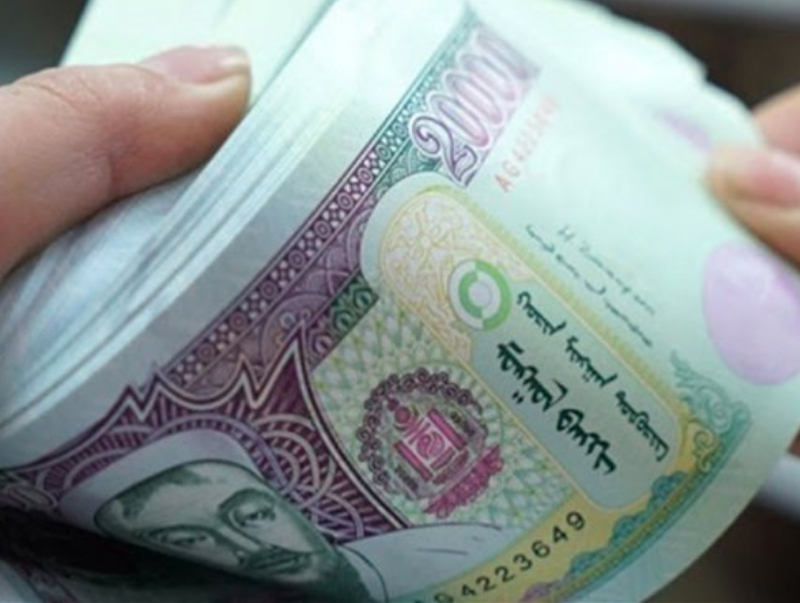
2025 оны 06 дугаар сарын 06-с 06 дугаар сарын 13-ны хооронд 3 удаагийн цахим арилжаа зохион байгуулан 30 хэлцлээр 41.4 тэрбум төгрөгийн үнийн дүн бүхий бараа, түүхий эд арилжсан байна.
Үүнд:
• Ноолуур 139.6 тонн – 41.3 тэрбум ₮
• Ямааны завод ноос 8.8 тонн – 35.9 сая ₮

Эдийн засаг
Үхрийн цул махны үнэ өсөж 23325 төгрөг болжээ
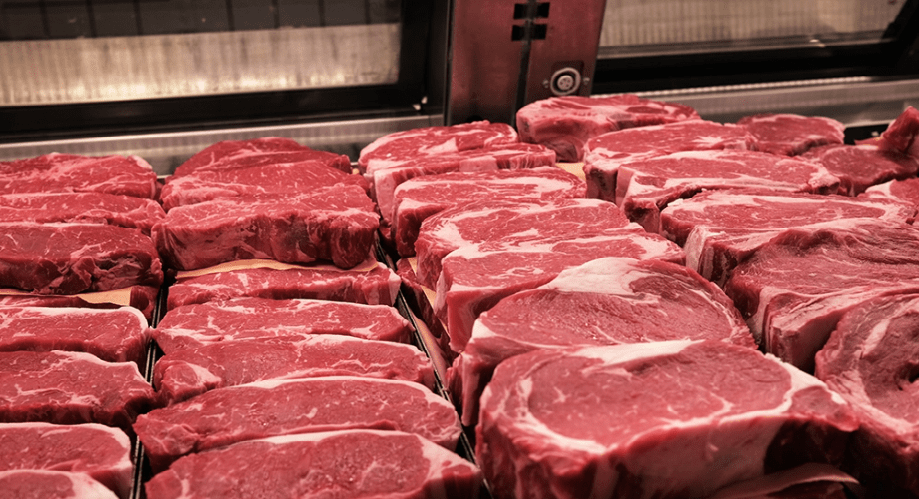
Нийслэлийн статистикийн газраас махны үнийн мэдээллийг танилцууллаа. Тодруулбал, 2025 оны 05 дугаар сарын 05-ны өдрийн байдлаар хонины ястай мах нэг килограмм нь дунджаар 17477 төгрөг, үхрийн ястай мах нэг килограмм нь дунджаар 20203 төгрөгийн үнэтэй тус тус худалдаалагдаж байна.
Өмнөх долоо хоногтой харьцуулахад үхрийн ястай махны үнэ өсөж 20203 төгрөг, үхрийн цул махны үнэ 23325 төгрөгийн дундаж үнэтэй байна.
Эдийн засаг
Монгол Улсын Хөгжлийн банкны дүрмийн санг 1.5 их наяд төгрөгөөр нэмэгдүүлэхээр боллоо
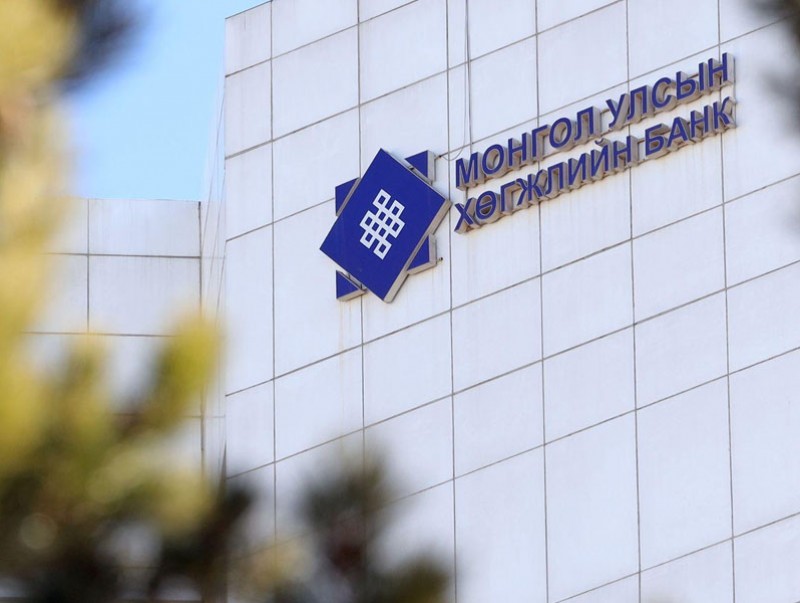
Монгол Улсын Хөгжлийн банкны талаар авах зарим арга хэмжээний тухай Монгол Улсын Засгийн газрын 195 дугаар тогтоолыг баталлаа. Монгол Улсын Засгийн газрын тухай хуулийн 30 дугаар зүйлийн 1 дэх хэсэг, Монгол Улсын Хөгжлийн банкны тухай хуулийн 23.1.1, 23.1.5-д заасныг үндэслэн Хөгжлийн банкны хувь нийлүүлсэн хөрөнгийг нэмэгдүүлэх талаар дараах арга хэмжээг авч хэрэгжүүлэхээр болов.
Тодруулбал, Монгол Улсын Хөгжлийн банкны хувь нийлүүлсэн хөрөнгийг нэг бүр нь 100.000 төгрөгийн нэрлэсэн үнэ бүхий 6.000.000 ширхэг энгийн, нэг бүр нь 100.000 төгрөгийн нэрлэсэн үнэ бүхий 9.000.000 ширхэг давуу эрхийн хувьцааг нэмж гарган, “Эрдэнэс Монгол” ХХК-ийн харьяа хуулийн этгээдэд эзэмшүүлэх замаар 1.5 их наяд төгрөгөөр нэмэгдүүлэхээр шийдвэрлэлээ.
Монгол Улсын Хөгжлийн банкны санхүүгийн ашигт ажиллагаатай уялдуулан энэхүү тогтоолын дагуу гаргасан хувьцааг буцаан худалдан авах ажиллагааг холбогдох хууль тогтоомжид нийцүүлэн үе шаттайгаар зохион байгуулахыг Хөгжлийн банкны ТУЗ-д зөвшөөрөв.
Хөгжлийн банкны өөрийн хөрөнгийн хүрэлцээ 2024 онд 9.46 хувь байсан бол дүрмийн санг 1.5 их наяд төгрөгөөр нэмэгдүүлснээр дээрх хувь 45.49 болж өсөх юм. Мөн чанаргүй зээл өнгөрсөн онд 57.38 хувь байсан бол 27.4 болж буурах тооцоо бий.

-
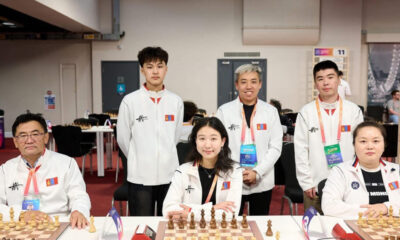
 Энтертайнмент13 цаг өмнө
Энтертайнмент13 цаг өмнөМонголын шатарчид багийн дэлхийн аварга боллоо
-
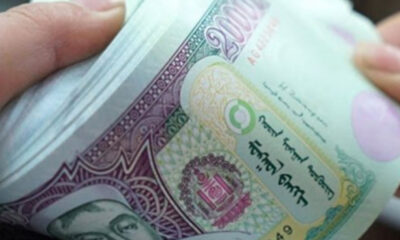
 Эдийн засаг17 цаг өмнө
Эдийн засаг17 цаг өмнөНийт 16.9 тэрбум төгрөгийн үнэ бүхий хөдөө, аж ахуйн гаралтай бараа, түүхий эдийг биржээр арилжлаа
-
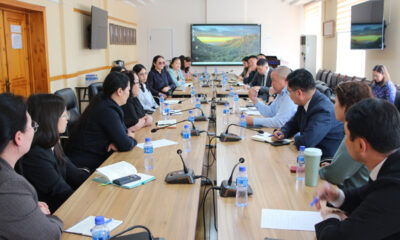
 Нийгэм16 цаг өмнө
Нийгэм16 цаг өмнөЖ.Хунан: Хууль хоорондын зөрчилдөөнд хүүхэд хохирох ёсгүй
-
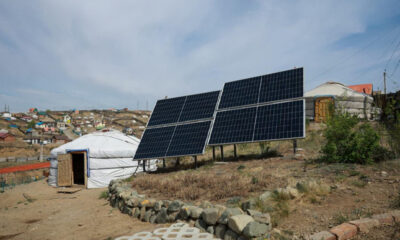
 Нийгэм14 цаг өмнө
Нийгэм14 цаг өмнөЯндангаа буулгаж, нарны эрчим хүч рүү шилжсэн айл өрхүүдийн нөхцөл байдалтай танилцлаа
-
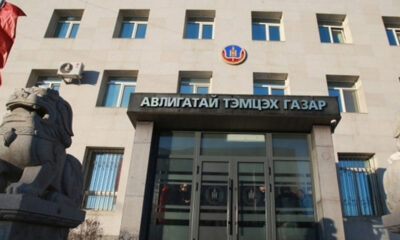
 Нийгэм14 цаг өмнө
Нийгэм14 цаг өмнөАТГ: Эрүүгийн 894 хэрэгт мөрдөн байцаалтын ажиллагаа явуулав
-

 Нийгэм15 цаг өмнө
Нийгэм15 цаг өмнөЭлсэлтийн шалгалт зургаадугаар сарын 18-нд эхэлнэ
-

 Нийгэм17 цаг өмнө
Нийгэм17 цаг өмнөСаналын хуудас, санал тоолох төхөөрөмж хүлээлгэж өглөө
-

 Нийгэм17 цаг өмнө
Нийгэм17 цаг өмнө“Хүрээ цам-Даншиг наадам 2025″ энэ сарын 28, 29-нд болно














































































